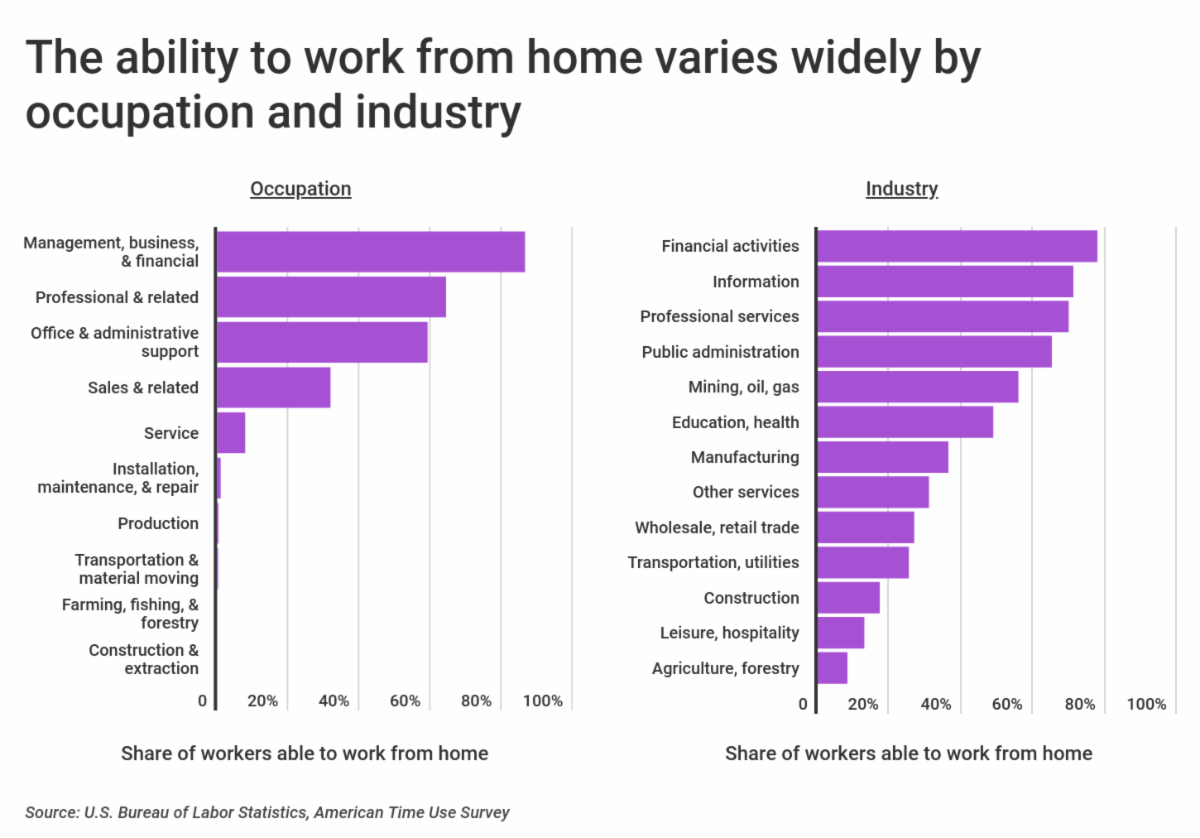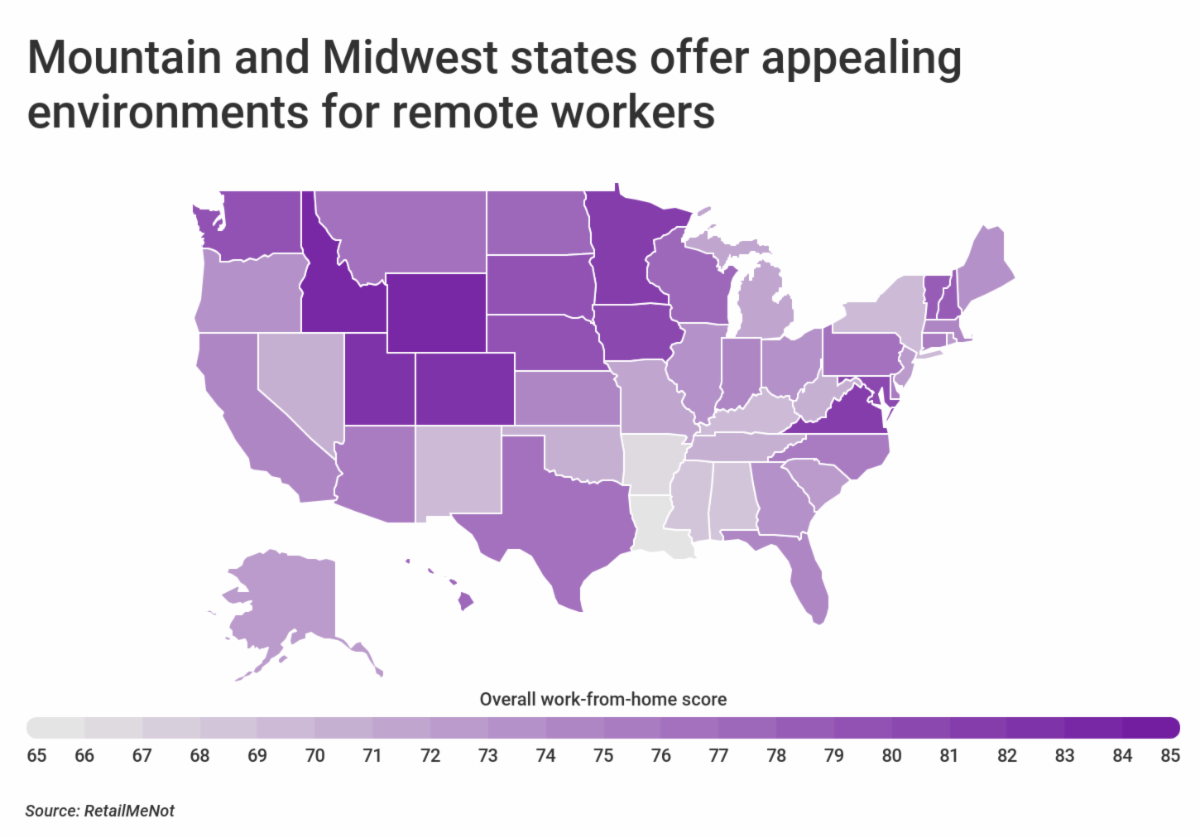Georgia Is a Tough State to Work From Home
Tuesday, January 19th, 2021
While the COVID-19 pandemic has been devastating for many businesses and workers, it has led to greater flexibility for workers in some industries. Employees at major tech companies, including Twitter and Google for example, have been granted extended opportunities to work from home, sometimes permanently. These changes have afforded many people the ability to work and live where they want, rather than being bound to large cities where their employers have offices.
This shift is leading many workers toward “Zoom towns”—cities that are booming as remote work becomes more popular. While much of the U.S. is experiencing rising home values during the pandemic as a result of low inventory, areas experiencing the largest booms are these Zoom towns, which are increasingly attracting well-educated laptop workers with lower living costs, access to outdoor recreation, and strong (albeit less dense) communities. Unfortunately for many workers, the opportunity for remote work and the ability to relocate to these cities are often only available to workers in tech, financial services, sales, and other similar roles that can be performed remotely.

To find the best locations to work from home, researchers at RetailMeNot ranked cities and states based on several metrics related to 1) community and safety, 2) housing and living costs, and 3) health and weather. In general, the researchers wanted to identify the most affordable locations with low crime rates, good weather for outdoor recreation, and well-educated, healthy populations, among other factors. Their researchers sourced data from the Centers for Disease Control and Prevention, the Federal Bureau of Investigation, National Centers for Environment Information, the U.S. Bureau of Economic Analysis, and the U.S. Census Bureau to create a composite score for each city.
At the state level, Mountain and Midwest states like Wyoming, Idaho, Utah, and Minnesota offer inviting environments for remote workers, with those states earning some of the highest composite scores for working from home. For example, Wyoming has no income tax, which is appealing for high-income professionals. Idaho, like Utah, offers residents good weather, access to the outdoors, low crime rates, and a large proportion of single-family homes. On the other hand, Southern states like Louisiana, Arkansas, and Alabama provide less appealing settings for at-home work. Despite being affordable, these states tend to have higher poverty and crime rates, more variable weather, and less opportunities for physical activity.

The analysis found that Georgia ranked average in community and safety, average in housing and living costs, and average in health and weather. Overall, Georgia is a tough state to work from home.
-
Overall work-from-home score: 73.56
-
Community & safety: 73.30
-
Housing & living costs: 76.74
-
Health & weather: 70.64
For more information, a detailed methodology, and complete results, you can find the original report on RetailMeNot’s website: https://www.retailmenot.com/


